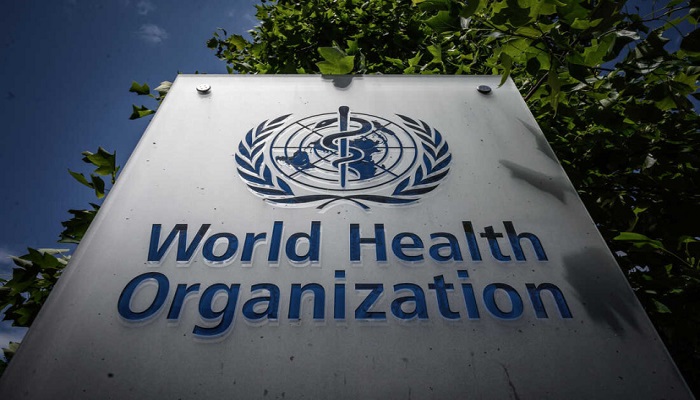PNN – On May 19 of this year, the World Health Organization adopted the negotiated text of the “Communicable Diseases Agreement” with 124 votes in favor, 11 abstentions, and no votes against. This move at the 78th Annual General Meeting of the World Health Organization is undoubtedly a great success.
The United States government criticized this collective action by the member states of the World Health Organization. The US Secretary of Health launched a harsh attack on the World Health Organization and called for an agreement outside the World Health Organization to be drafted and approved to combat infectious diseases. It is worth noting that US President Trump signed an executive order on January 20, 2025, the exact day he re-entered the White House, terminating the United States’ membership in this international organization.
The above highlights the importance of health issues in international relations and how power and international cooperation relate to public health issues. Despite the US’s wishes, the majority of countries in the world ratified the Communicable Diseases Convention. Interestingly, the US itself participated in the review of this convention in its early stages.
Read more:
American-style nation building: From the Marshall Plan to the World Education Organization
Meanwhile, a significant question arises in the minds of analysts and foreign policy practitioners: how can the relationship between health and health-related issues and international relations be examined? The answer should address the “roots of global cooperation in health issues,” then consider “the changes in the past three decades between health and international relations,” and finally consider “what the new agreement looks like in terms of international relations.”
Illness and health have been an inseparable and continuous part of human life. Threats to human health have been a constant concern for governments and nations, and this phenomenon is ancient and deeply rooted in history and social life. But what is important in this etymology of the relationship between health and politics is the emergence and emergence of numerous infectious diseases that have crossed political and national borders and encompassed different regions and sometimes the entire world.
How many glorious civilizations and powers have there been in history that were devastated and destroyed by plague, cholera, and epidemics? In contrast, when it comes to widespread diseases, human societies have no choice but to cooperate.
Especially in the past two centuries, as multilateral diplomacy has grown, governments have cooperated in technical and specialized fields. Health, and especially the prevention of the spread of infectious diseases, has been a serious area. There is considerable historical evidence on this. A study by Richard Dedgson et al. in 2002 entitled “Global Health Governance” and published jointly by the Centre for Global Change and Health at the London School of Hygiene and Tropical Medicine and the Department of Health and Development of the World Health Organization (WHO) refers to the first global health cooperation as the 1851 conference.
The International Health Conference has been held ten times over the past forty years since then, leading to the emergence of international cooperation institutions in health and laying the foundations for the development of regulations between governments. In continuation of these activities, the League of Nations, an international institution that emerged from World War I, established its Health Committee, and interestingly, Iran, which joined the League of Nations in the late Qajar period, played an active and significant role in this committee.
This same committee, after the dissolution of the League of Nations and the establishment of the United Nations, would become the World Health Organization, which would hold its 78th annual session this year, attended by the health ministers of member states. But the relationship between health and global cooperation has taken on a new form and content in the past three decades. What is known as globalization has brought different human societies closer together in the past three decades, migration has increased, and currently more than 200 million migrants live outside the countries where they were born, and international travel has increased significantly compared to the past.
These issues, at the same time, have increased the possibility of diseases spreading and becoming widespread. The spread of AIDS and SARS in previous decades, and most importantly, the COVID-19 pandemic and the changes that this widespread disease has created in the structure and fabric of societies and the relationships between them, have turned the issue of global health governance into an interdisciplinary phenomenon, bringing together health and treatment experts on the one hand and international relations experts on the other.
The valuable book “Global Health and International Relations”, written by Colin McInnes and Kelly, well illustrates the symmetry of these two fields, medicine and international relations. Global health governance has undergone a major transformation with Corona. The World Health Organization, as part of the global health governance system and complex, approved the need to negotiate to develop regulations on communicable diseases, and more than three years of negotiations, based on Article 14 of the organization’s statute, ended this year and a new treaty was ready to be signed.
According to international law, this treaty must be signed by countries and ratified by legislative assemblies, and once 60 countries have ratified it domestically, it will enter into force at the global level. The 35-article treaty is the second major effort by the World Health Organization in recent years. The first was the 2003 Tobacco Control Treaty, which was a success. What has been mentioned shows that multilateral diplomacy, especially in specialized areas such as health, can move forward without the United States. Despite the challenges, international cooperation in health has made the WHO a significant actor.

